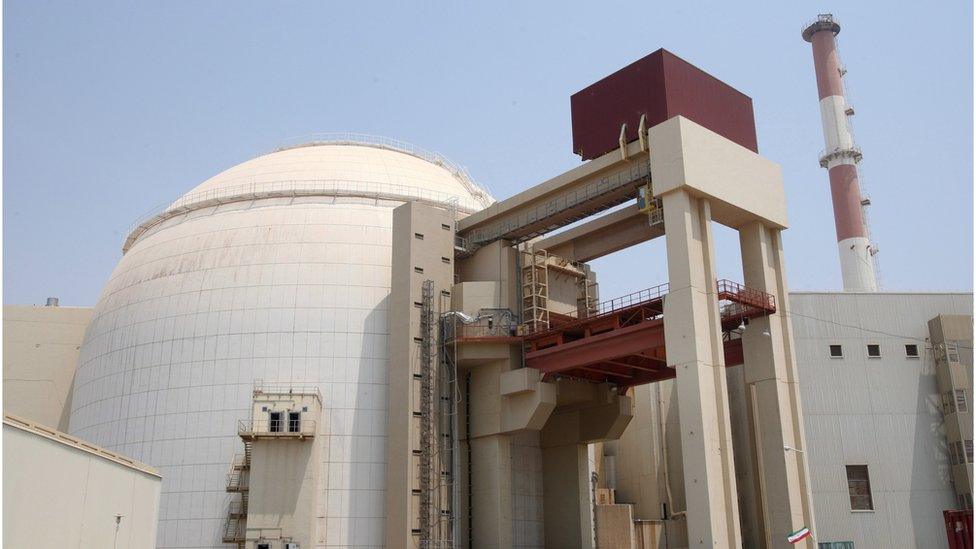Talks held in Vienna to salvage Iran nuclear deal
- Published
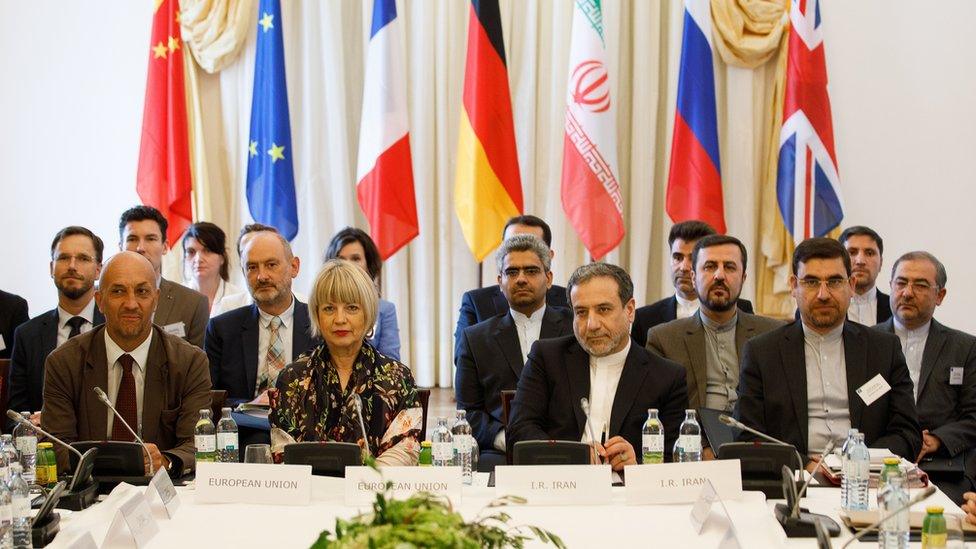
The talks have been held in Vienna
Talks to try to save the Iran nuclear deal have been held amid rising tensions over tankers in the Gulf.
After meeting officials from Britain, France, Germany, Russia and China in Vienna, a senior Iranian official said the atmosphere had been "constructive".
Tensions have soared since the United States withdrew from the 2015 accord last year and reimposed sanctions.
In recent weeks, Iran and Britain have seized a tanker each - putting further pressure on the 2015 accord.
Iran has also admitted breaching restrictions on its production of enriched uranium, used to make reactor fuel but also potentially nuclear bombs.
What was hoped for from the meeting?
The aim of the emergency talks was to ease recent tensions, and keep the 2015 agreement, officially known as the Joint Comprehensive Plan of Action (JCPOA), alive.
Earlier this month, the UK, French and German leaders had issued a joint statement saying they were "deeply troubled" by events in the Gulf, and said it was "time to act responsibly and seek a path to stop the escalation of tensions and resume dialogue".
Arriving at the meeting, Iran's Deputy Foreign Minister Abbas Araghchi said he considered the seizing of its oil tanker in breach of the JCPOA, and Iran also described as "provocative" British proposals for a European-led mission to escort tankers through the Strait of Hormuz, a vital international shipping route.
Mr Araghchi said after the meeting: "The atmosphere was constructive. Discussions were good. I cannot say that we resolved everything, I can say there are lots of commitments."
China's representative Fu Cong said all parties had "expressed their commitment to safeguard the JCPOA and... expressed their strong opposition against the US unilateral imposition of sanctions."
Iran's Foreign Minister: We cannot leave our own neighbourhood
What do we know of tensions?
Tensions between the UK and Iran rose earlier this month after British forces seized the Iranian tanker, Grace 1, off Gibraltar. London alleged it was carrying oil to Syria in breach of EU sanctions, a claim denied by Iran.
Several days later the British-flagged Stena Impero was impounded by Iran, which said it had been "violating international maritime rules".
Britain sent a second warship on Sunday to escort its ships sailing through the Strait of Hormuz.
Recent incidents have also included:
US claims that an Iranian drone was destroyed after coming close to the USS Boxer aircraft carrier earlier this month
A US threat to carry out air strikes after Iran shot down a US drone in June
Explosions that damaged two tankers near the Strait of Hormuz, also in June
Blasts that hit four tankers in the UAE's territorial waters in May
Inside Iran: Iranians on Trump and the nuclear deal
Why is the deal in trouble?
In 2018, President Donald Trump said he would unilaterally withdraw the US from the agreement which was signed by his predecessor Barack Obama.
The US then reinstated sanctions on Iran, as well as countries and companies do business with Iran.
The other parties criticised Mr Trump's decision and said they remained fully committed to the deal.
What's behind the rising tensions between the US and Iran?
Earlier this month, the International Atomic Energy Agency confirmed that Iran had breached the deal's cap on stockpiling of low-enriched uranium.
Iran said it was responding to sanctions reinstated by the US after Mr Trump abandoned the deal. It has also confirmed it will break another of the limits imposed by the deal.
- Published15 July 2019
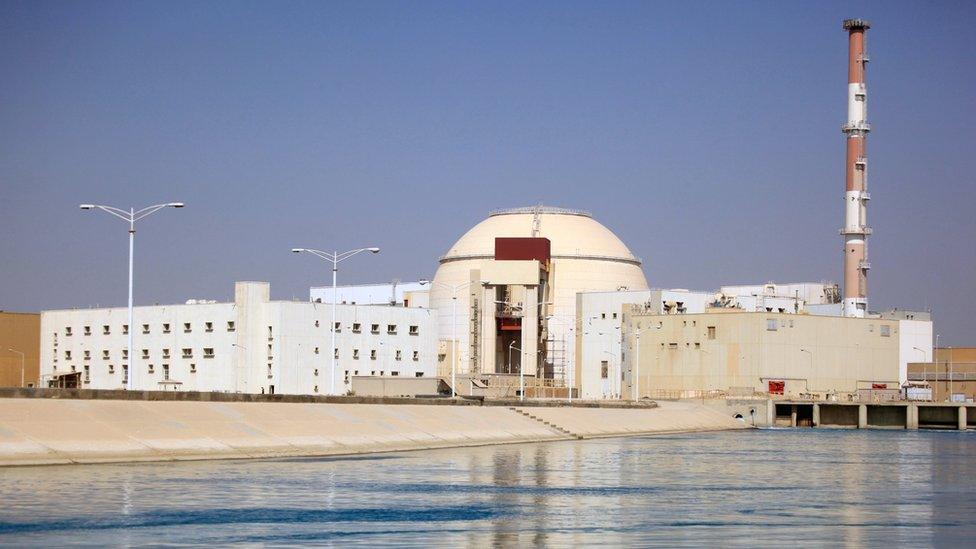
- Published16 November 2021
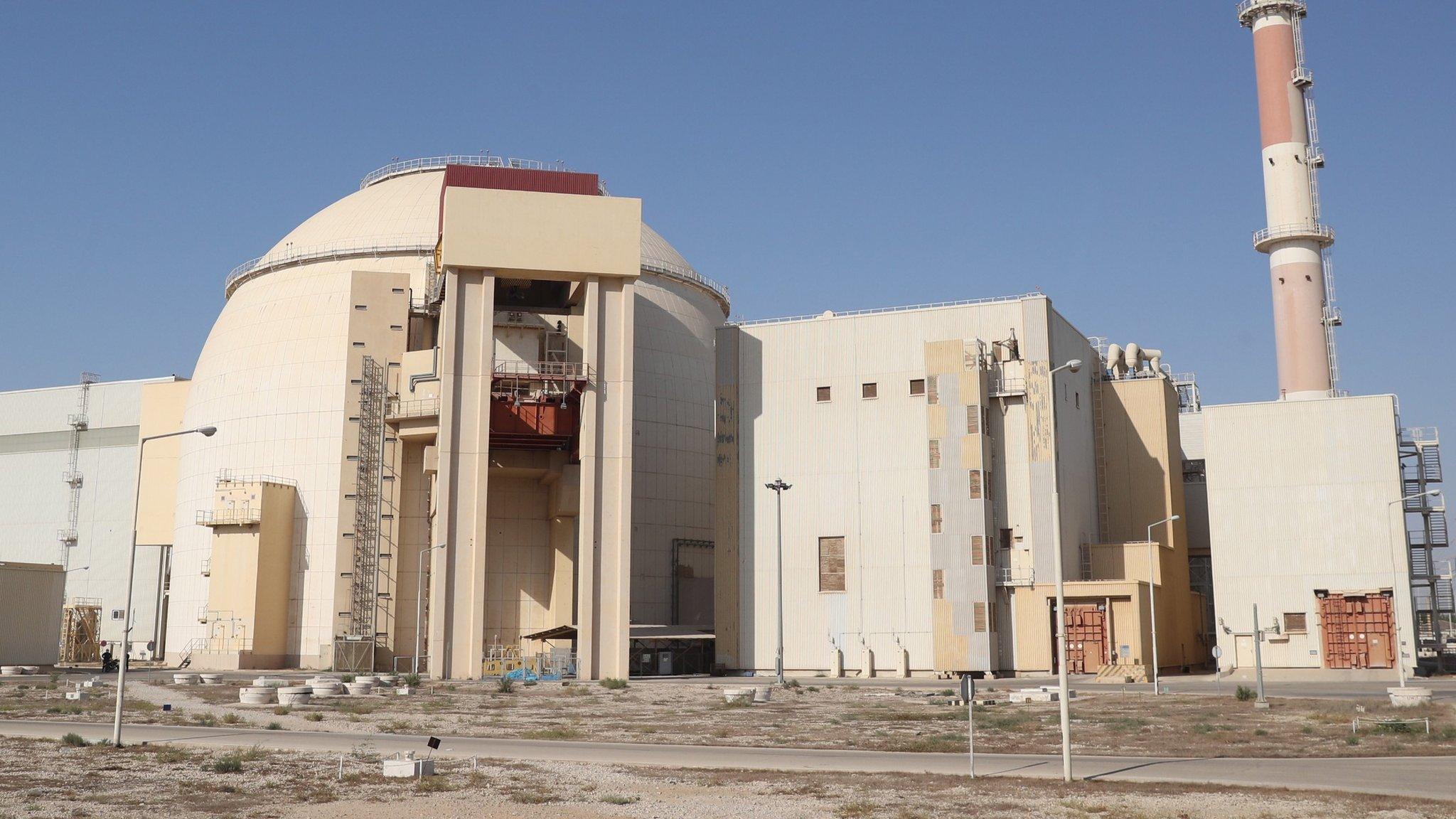
- Published23 November 2021
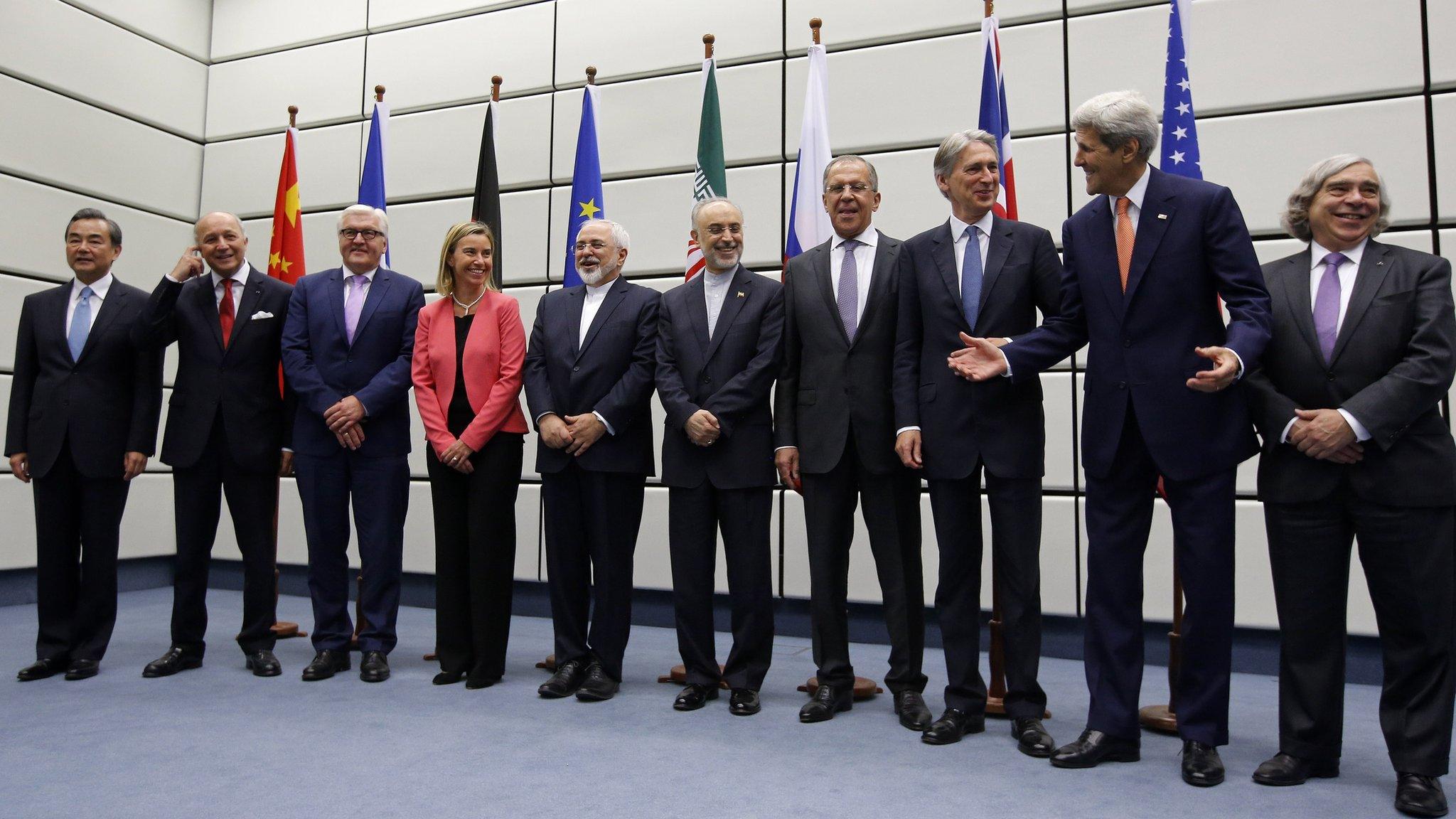
- Published7 July 2019
